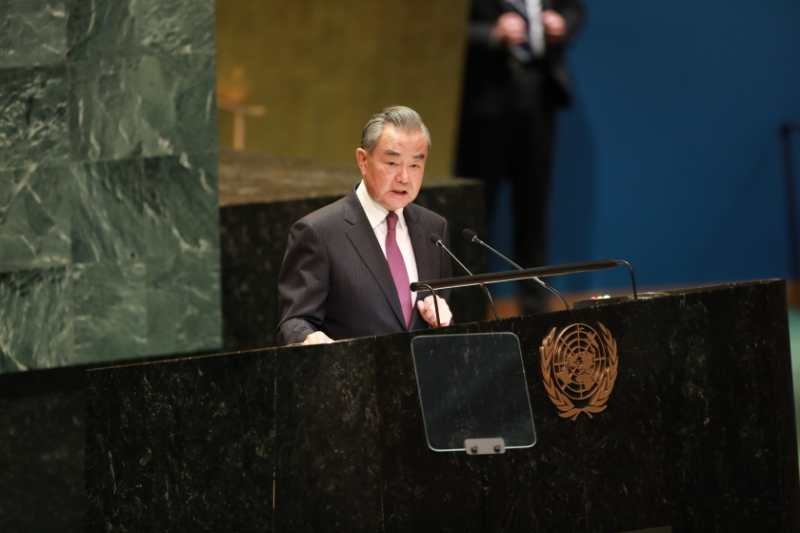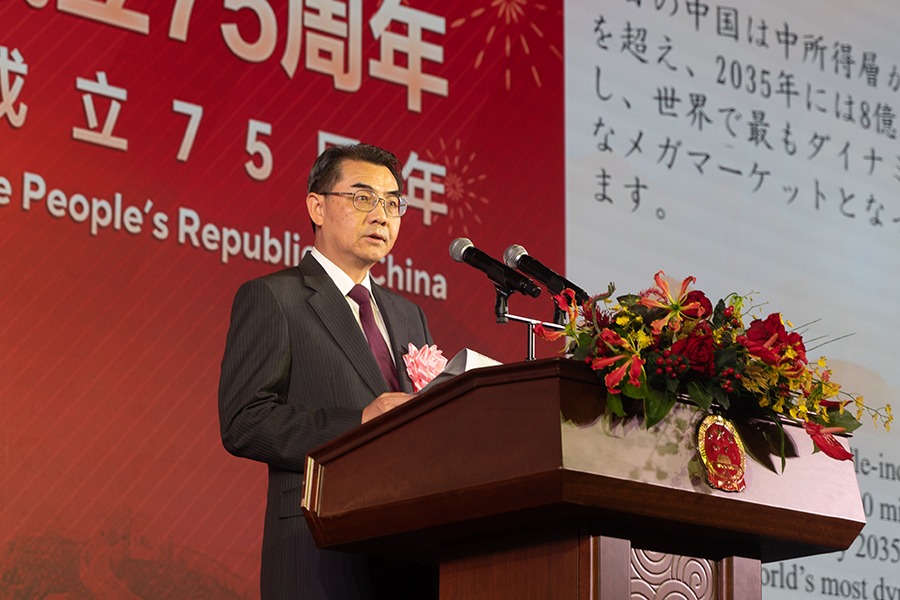Sino-French dialogue brings EU aspirations into focus


In international diplomacy, moments emerge when leaders are tasked with not only dealing with complex relationships but also helping shape the future course of global cooperation. President Xi Jinping's trip to France to mark the 60th anniversary of Sino-French diplomatic relations presents just such an occasion for French President Emmanuel Macron to showcase not only his personal statesmanship but also France's rich tradition of an independent foreign policy — one that champions both national interests and the broader aspirations of the European Union.
In 1964, President Charles de Gaulle made history when he boldly led France to become the first major Western country to establish official diplomatic relations with the People's Republic of China. De Gaulle's idea of French independent foreign policy emphasized the need for France to assert its sovereignty and pursue its own interests on the world stage.
He believed that France should maintain strategic autonomy, free from excessive influence of other major powers, and should be able to act independently on national security, diplomacy and economic policy.
At the heart of this pivotal moment of President Xi's visit lies the potential for France to again assume a position of global leadership, particularly in the realm of economic diplomacy. In an interview with the Italian media, Macron's call for an "aggiornamento" in economic ties with China underscores his hopes for a recalibration that promotes reciprocity. Instead of protectionism and other disruptive moves, diplomacy can lead to positive results and balancing of trade.
The relationship between China and France is imbued with historical significance and cultural resonance, stretching back centuries to epochs such as the French Revolution which had also inspired progressive leaders like Chinese revolutionary stalwarts Dr. Sun Yat Sen and Mao Zedong. This shared history, marked by mutual admiration and intellectual exchange, forms a strong foundation upon which to build better cooperation.
Moreover, the parallels between the proud tradition of French independence, epitomized by leaders like de Gaulle, and China's own historical quest for sovereignty and self-determination provide a fertile ground for forging a new era of diplomatic collaboration. Zhou Enlai and Deng Xiaoping are two great Chinese statesmen educated in France, who had played pivotal roles in shaping China's modern trajectory and in promoting better ties with France.
As Macron welcomed President Xi Jinping to France, the opportunity for strategic collaboration on pressing global issues loomed large. From peace efforts in regions plagued by conflict, such as Ukraine and the Middle East, to addressing the urgent threat of climate change, there exist many areas where China and France can lead by example through joint action and cooperation. President Xi at the joint press conference voiced support for Macron's proposal of "Olympic truce in all theaters of war" from July 26 to Aug 11, 2024, when Paris hosts the Olympic Games.
In the realm of technology and innovation, the convergence of Chinese and French interests holds immense promise. Collaboration on renewable energy and clean technology, artificial intelligence and robotics, aerospace and aviation, biotechnology and healthcare, smart cities and urban development, and other cutting-edge fields not only benefits both nations but also contributes to overall human advancement. By leveraging their respective technological and industrial strengths and expertise, China and France can drive forward progress on a scale that transcends national boundaries.
Furthermore, the shared appreciation for culinary excellence and cultural heritage serves as a bridge between the peoples of China and France, fostering mutual understanding. Just as Voltaire and French intellectuals once looked to Confucius and the ancient Chinese civil service exams for inspiration, France and China can now cooperate more for a better, more stable world.
In conclusion, Xi's visit to France presents a unique opportunity for Macron and France to redefine global leadership by embracing principles of mutual respect, cooperation, strategic autonomy and shared prosperity. France can play a pivotal role in fostering a more dynamic and constructive partnership between the EU and China, rooted in trust and respect. Rather than squandering opportunities and energy on destabilizing distrust and useless ideological polemics, France can lead the way for EU toward constructive engagement and fruitful collaboration with China that would bring economic benefits to both sides.
By championing a vision of diplomacy rooted in pragmatism and goodwill, France can again assume its rightful place on the world stage, alongside China and other nations, in promoting global stability, hope and progress.
As the French poet Victor Hugo once wrote, "There is one thing stronger than all the armies in the world, and that is an idea whose time has come." French and Chinese leaders should seize this moment to realize the full potential of Franco-Chinese cooperation for the benefit of humanity.
Wilson Lee Flores is moderator of Pandesal Forum, multi-awarded writer, columnist of "Philippine Star" and "Abante" newspapers, economics and politics analyst, poet, college teacher and real estate entrepreneur. The views do not necessarily reflect those of China Daily.
































